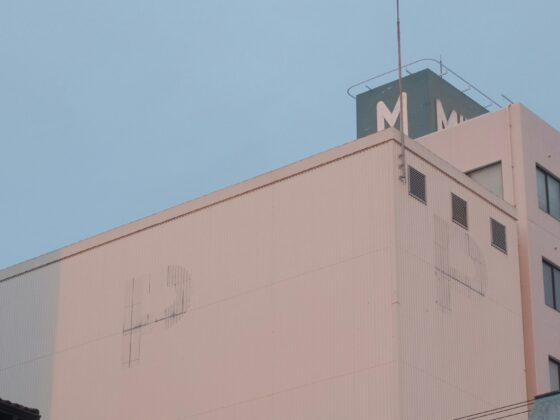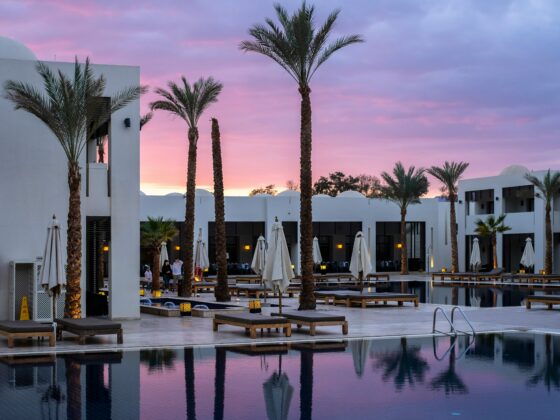
Myth 1: The Hotel Industry Is Dynamic
Stuck in the Past: The Reluctance to Change
The hotel industry is often portrayed as a dynamic sector, perpetually evolving to meet the latest trends in technology, guest preferences, and market demands. This perception suggests that hotels adapt quickly, constantly upgrading their products and services to stay ahead of the curve. The industry is a leader in innovation, from mobile check-ins and personalized guest experiences to eco-friendly practices and smart room technologies.
However, the reality is far less progressive. Despite the outward appearance of constant evolution, the hotel industry is, in fact, deeply resistant to change. Many hotels operate with outdated systems and processes that have remained unchanged for decades. Adopting new technologies is often slow, with many hotels lagging behind other industries in implementing innovations that could significantly enhance operational efficiency and the guest experience. In the McKinsey Global Institute Industry Digitization Index, hospitality was third from the bottom among 22 industries.
Reality Check
This reluctance to change is evident in several areas:
- Slow Adoption of Technology: While some hotels have embraced technology, many still rely on legacy systems that are cumbersome and inefficient. The reluctance to adopt cloud-based property management systems, digital keyless entry, or digital guest communication tools is often due to these changes’ perceived complexity and cost.
- Outdated Operational Processes: Traditional processes, such as manual check-ins, outdated reservation systems, and paper-based record-keeping, are still common in many hotels. These practices slow down operations and prevent hotels from gathering and utilizing data that could enhance the guest experience and streamline management. The check-in process, for instance, has remained largely unchanged for over a century.
- Innovation Often Comes from Outside the Industry: Many significant innovations that have shaped the modern hotel experience, such as Wi-Fi, online travel agents, and various technological advancements, originated outside the hotel industry. External tech companies and other industries developed these innovations instead of the hotel industry. The reliance on external sources for innovation underscores the industry’s hesitation to lead transformative change from within.
- Reluctance to Innovate: Innovation in the hotel industry often comes in small, incremental steps rather than bold, transformative changes. For example, while many hotels offer Wi-Fi as a standard amenity, few have explored leveraging this connectivity to provide personalized in-room experiences or integrated services utilizing the Internet of Things (IoT) to enhance guests’ stay.
Reasons for Reluctance
- Conservative Management: A significant factor behind the industry’s reluctance to change is the conservative nature of hotel management. Many hotel leaders prioritize tradition and are hesitant to depart from the established ways of doing things. This conservative mindset can stifle innovation and prevent hotels from adopting new strategies that could better meet modern guest expectations.
- Cost Concerns: Hoteliers blame owners’ lack of willingness to invest and the cost as a significant barrier to change. Upgrading technology, retraining staff, and overhauling operations require substantial investment, and many hotels are reluctant to incur these costs without a guaranteed return on investment. This financial conservatism often leads to a “wait and see” approach, where hotels delay adopting new technologies until proven by others. By this time, they may already be behind the curve. One example of wait-and-see is electronic key cards. After 20+ years, maybe these will be replaced by mobile keys, so some hoteliers and asset managers will be happy that they waited to invest.
- Risk Aversion: Fear of disrupting the status quo and alienating loyal customers is another reason for the industry’s resistance to change. Many hotels are concerned that introducing new technologies or changing established processes might negatively impact the guest experience, leading to dissatisfaction among regular guests. This risk aversion often results in hotels sticking with what is familiar, even if it is less efficient or effective. Many other industries have dramatically changed how they manage their customers. Banks and food stores are good examples of places where consumers perform the jobs that bank tellers and food store employees did 20 years ago.
The hotel industry’s reluctance to change significantly impedes its ability to meet guests’ evolving needs and stay competitive in a rapidly changing market. While the perception may be that hotels are constantly innovating, the reality is that many are stuck in the past, clinging to outdated practices and systems. This resistance to change limits the growth potential and risks of leaving the industry behind as guest expectations rise and new competitors emerge with more agile and innovative approaches. The hotel industry must overcome its fear of change and embrace innovation opportunities to be dynamic.
Myth 2: The Hotel Industry Delivers Customized Offerings and Services
The Illusion of Customization: Why Hotels Struggle to Know Their Guests
Hoteliers lead the modern traveler to believe that hotels can deliver highly personalized experiences tailored to their unique preferences. From bespoke room setups and curated amenities to personalized recommendations and services, the perception is that hotels have evolved to anticipate and cater to each guest’s specific desires. Hotels emphasize this belief through marketing campaigns that emphasize customization and suggest that hotels have the insights and capabilities to make each stay uniquely special.
However, the reality of customization in the hotel industry is far from this ideal. Despite the promises of personalized experiences, most hotels lack the necessary data, insights, and operational flexibility to truly understand and cater to individual guest preferences. What often passes for customization is, in fact, a series of broad assumptions or standardized offerings that are far from personalized.
Reality Check
The struggle to deliver true customization is rooted in several key challenges:
- Limited Data Integration: One of the most significant barriers to effective customization is the fragmented nature of systems within most hotels. Hotels scatter guest data across various platforms—reservation systems, loyalty programs, guest feedback forms, and third-party booking engines. Without a unified system that consolidates and analyzes this data, hotels cannot fully understand their guests’ preferences. As a result, any attempt at personalization is typically based on incomplete or outdated information, leading to generic offerings rather than truly customized experiences.
- Collection and Management of Guest Data: Collecting and managing guest data is particularly challenging due to the ongoing struggle over who “owns” the guest—the OTA (Online Travel Agent) or the hotel. This lack of clarity often leads to insufficient data transfer between systems. Additionally, front desk staff, such as receptionists, are usually overwhelmed with their day-to-day tasks, leaving little time to ask guests for detailed information or ensure that guest data is accurately entered into the PMS (Property Management System). Moreover, guests are often reluctant to share personal information, further complicating the hotel’s ability to gather the data needed for a customized stay.
- Generic Hotel Room Design: Hotels frequently build generic rooms to accommodate any guest, making it challenging to customize the physical space according to individual needs. The same room that hosts a business traveler one night might be used for a family of four the next, with extra beds squeezed in to maximize occupancy. This one-size-fits-all approach limits the hotel’s ability to offer customized in-room experiences catering to different guest segments’ specific preferences and requirements.
- Generic Offerings: Many hotels claim to offer personalized services, but these services are often standardized across the board. For example, a complimentary bottle of wine in the room or a choice of pillows may be marketed as a personalized touch. Still, these gestures are rarely based on individual guest preferences. Instead, they are broad offerings applied to all guests or specific segments, regardless of their unique tastes or needs. This approach falls short of the deep personalization that today’s guests increasingly expect.
- Operational Constraints: Even when hotels have some insight into guest preferences, operational limitations often prevent them from delivering on the promise of customization. Staffing levels, for instance, may not allow for the flexibility required to meet individual guest requests. Additionally, the cost and complexity of implementing personalized services at scale can be prohibitive, leading many hotels to default to more generic solutions. This lack of scalability means that true customization is often reserved for the most exclusive or high-end properties, leaving most guests with a more uniform experience.
Without a deep and holistic understanding of individual guest needs, hotels cannot deliver the level of customized service they often claim to offer. Guests typically receive a one-size-fits-all approach, dressed up as personalization but lacking the substance to meet their expectations. As a result, hotels frequently fall short of delivering genuinely customized experiences, relying instead on broad assumptions and standardized services. To overcome this challenge, the industry must invest in better data integration, more flexible operations, and a genuine commitment to understanding and meeting the unique needs of each guest. Only then can hotels move beyond the illusion of customization and deliver the personalized experiences that today’s travelers desire.
Myth 3: The Hotel Industry Operates Under Unmanageable Pressure
Masters of Complaint: The Exaggerated Perception of Industry Pressure
We think the hotel industry is one of the most challenging sectors to operate in, characterized by constant, unmanageable stress. Hotels are under relentless pressure due to fierce competition, ever-demanding guests, and the volatility of economic conditions, driving this perception. From dealing with fluctuating occupancy rates to navigating the complexities of guest satisfaction, the industry is in a perpetual state of crisis management.
However, this narrative of overwhelming pressure is frequently exaggerated. While the hotel industry faces significant challenges, many hotels manage and thrive under these conditions—often better than industries facing similar or greater stress levels. The constant emphasis on pressure can be a convenient excuse to mask deeper issues within the industry, such as complacency and resistance to change.
Reality Check
Despite the frequent complaints about unmanageable pressure, many of these stresses are not as severe as they are portrayed. The hotel industry often exaggerates these pressures for several reasons:
- Complacency and Resistance to Improvement: The constant pressure narrative sometimes justifies a lack of innovation or improvement. By framing their operational challenges as insurmountable, some hotels avoid the difficult but necessary changes that could enhance their performance. This complacency allows them to maintain the status quo rather than seeking new solutions or adopting more efficient practices. The perceived pressure becomes a barrier to progress, reinforcing a cycle of inertia.
- Culture of Complaint: The hotel industry focuses on challenges rather than proactive solutions. This culture of complaint can perpetuate a negative outlook, where even manageable issues are seen as overwhelming. Instead of embracing challenges as opportunities for growth and innovation, the industry often defaults to a narrative of victimhood, which can stifle creativity and discourage the pursuit of improvement.
- Selective Pressure: The pressure that the hotel industry often complains about is not evenly distributed across all aspects of the operation. Much of it stems from external expectations to innovate, modernize, and keep up with industry trends—areas where many hotels resist change. Internal operational challenges, such as maintaining service standards or managing costs, are often well within the control of hotels but are perceived as overwhelming due to this resistance. The selective focus on certain types of pressure, particularly those that require change or innovation, amplifies the perception of an industry under siege.
- Innovation from Outside the Industry as a Threat: Innovation often comes from outside the hotel industry, and rather than embracing these changes, the industry frequently views them as threats. For example, OTAs (Online Travel Agents) were initially welcomed by hotels for the increased bookings they brought but soon became a source of complaint due to their high commission rates. Similarly, the rise of Airbnb introduced a new and innovative form of accommodation, leading hotels to complain about what they perceived as unfair competition. This pattern is typical of old and conservative industries that tend to resist newcomers—much like how traditional taxi services reacted to Uber.
- Focus on Government for Complaints: The hotel industry often targets the government when voicing complaints. Issues like the lack of staffing are attributed to insufficient hospitality education, economic recessions, inadequate infrastructure (such as poor air, rail, and road connections), and limited destination marketing resources. Additionally, regulations like GDPR and mandatory privacy rules are frequently criticized. This tendency to blame external factors reflects wishful thinking that someone else—often the government—should solve these problems rather than the industry taking proactive steps to address them.
While the hotel industry undoubtedly faces its share of challenges, the narrative of being under unmanageable pressure is often overstated. Many of the industry’s struggles are self-inflicted, arising from a reluctance to embrace change and an ingrained culture of complaint. By exaggerating the pressures they face, hotels can avoid taking responsibility for the improvements and innovations needed to stay competitive in a rapidly evolving market. To move forward, the industry must shift its focus from the challenges to the solutions, recognizing that while pressure exists, it is not insurmountable. Embracing change, fostering a culture of proactive problem-solving, and taking ownership of the industry’s future are essential steps toward breaking free from the myth of unmanageable pressure.
Conclusion: Three Actions to Propel the Hotel Industry Forward
The hotel industry must take decisive actions to overcome these myths and truly become dynamic, guest-focused, and adept at managing challenges without complaints. Here are three key steps that can drive meaningful change:
1. Embrace Innovation from Within
The hotel industry must shift from relying on external innovations to fostering a culture of internal innovation. Hotels must actively invest in research and development, encourage creative problem-solving, and empower staff at all levels to contribute ideas for improving operations, enhancing the guest experience, and staying ahead of industry trends. By cultivating a mindset that values continuous improvement and risk-taking, hotels can take charge of developing new technologies, services, and processes that set them apart from competitors. This internal drive for innovation will keep the industry dynamic and reduce dependence on external sources for transformative change.
2. Prioritize Data-Driven Personalization
To truly deliver customized offerings and services, hotels must overcome the challenges of data fragmentation and guest data ownership. Investing in robust, integrated data management systems that consolidate information from all touchpoints—reservations, loyalty programs, guest feedback, and more—is crucial. Hotels should also focus on building trust with guests to encourage sharing personal information by demonstrating how it enhances their stay. By leveraging this data effectively, hotels can move beyond generic offerings and provide genuinely personalized experiences that cater to each guest’s unique preferences and needs, thereby strengthening customer loyalty and satisfaction.
3. Cultivate a Solution-Oriented Culture
The industry must move away from its culture of complaint and adopt a solution-oriented mindset. Hotels must recognize challenges as opportunities for growth rather than insurmountable obstacles. Hotels should focus on proactive problem-solving, embracing change, and taking ownership of their future. Hotels must address internal operational issues with innovative solutions, seek collaboration rather than confrontation with new market entrants like OTAs and Airbnb, and work constructively with governments and regulators to improve industry standards and infrastructure. By fostering a positive, forward-thinking culture, the hotel industry can better manage external pressures and position itself as a leader in the global hospitality landscape.
By taking these actions, the hotel industry can shed its outdated perceptions, become genuinely dynamic, and deliver on the promise of personalized, guest-focused service while effectively managing the challenges of a rapidly changing market. The path to transformation lies not in resisting change but in embracing it with confidence and a commitment to continuous improvement.





